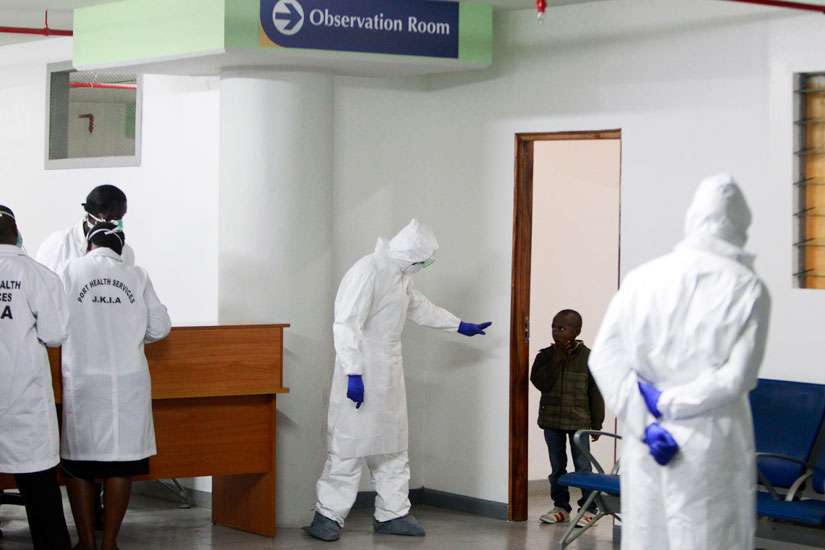The Pontifical Council for Justice and Peace announced Jan. 7 that the Holy See would be making a "financial contribution" to support Church-sponsored assistance to those affected by the Ebola outbreak. Vatican Radio reported the sum would be $3.5 million.
"The Holy See encourages other donors, whether private or public, to add to these funds as a sign of solidarity with our brothers and sisters who are suffering gravely in the areas affected by the disease," the council said in a written communique.
Cardinal Peter Turkson, council president, travelled to Liberia and Sierra Leone Dec. 16-19 to meet with government officials and Church leaders and to demonstrate the Vatican's support for those affected by the crisis.
The Vatican's financial contribution will go "to purchase much-needed protective supplies, to assist with the transport of patients and to pay for the renovation of buildings," as well as help support families affected by the virus and children who have been orphaned, the council said.
The funding also will be used to: help residents in affected areas learn about and follow strategies needed to stop the spread of Ebola; train and support clergy, religious and lay pastoral workers to attend better to people's physical, emotional and spiritual needs; and help local parishes counteract "the Ebola-related stigma now emerging as a serious problem, particularly for survivors."
The funding, it said, will be administered by Caritas Internationalis, the umbrella organization for national Catholic charities, but will be available by request to projects run by dioceses, religious congregations and other Church-based organizations.
The pontifical council also released a five-page document titled "Expanding the Catholic Church's Commitment to the Ebola Emergency Response" in English and Italian to provide details of how the Church has responded to the crisis on the local level and what more needs to be done.
While governments and other organizations are committed to treatment and other important health care concerns, the Church is uniquely able to offer emotional and spiritual support in addition to physical care, the document said.
The acutely contagious nature of the disease has led to strong recommendations against touching Ebola patients, however, as ministers, it said, "we should not avoid" such persons and "must offer our spiritual closeness in ways that will bring them and their family members comfort and hope."
The Church "can contribute greatly to the prevention of stigma and discrimination in families, neighbourhoods and in local faith communities" because those affected by Ebola, even those who recover, "can easily become victims of rejection, blame and abandonment."
The document also made a few recommendations for how the Church could step up its response, including the need for more clergy, religious and lay Catholics from around the world to help the local Church in affected areas and back home.
It also called for the creation of a "Catholic network of solidarity for the Ebola emergency," aimed at helping organizations, including bishops on the national and regional levels, share effective responses and policies, and "discern solutions for difficulties encountered."
The document said it would like to see "interactive discussion and planning" among the leaders of religious congregations, international Catholic organizations and lay movements "in order to assure the best use of resources and expertise as we respond to the changing needs and dynamic nature of this epidemic."


